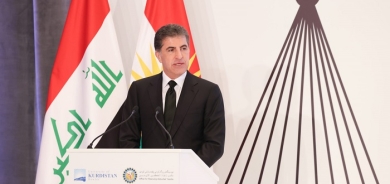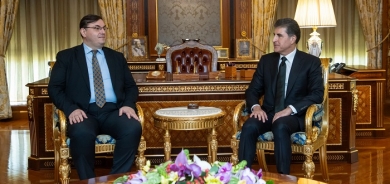Migrant crisis: Slovenia army to help police

His announcement came as hundreds of migrants began arriving on its borders with Croatia - a day after Hungary closed its frontier with Croatia.
Many of the migrants aim to continue north to Austria and Germany.
More than 600,000 migrants have reached the EU by sea so far this year, many travelling from Turkey to Greece.
However more than 3,000 have perished trying to cross the Mediterranean. Many migrants are Syrians fleeing the civil conflict there.
Slovenia's Prime Minister Miro Cerar, speaking after a meeting of the National Security Council, said the government had decided "to include the army in helping police".
Officials, according to the Associated Press, said the military would only be deployed if there were large numbers of migrants, and would only provide logistical support to the police.
"We are going to focus even more on safety and security and order so our country can function normally," Mr Cerar said, adding, "if destination countries begin adopting stricter measures at the border, Slovenia will follow suit".
Throughout the morning, some 600 refugees at a reception centre near Croatia's border with Serbia were bussed to two border crossings into Slovenia.
The UN refugee agency said they were being registered by police and taken to a refugee camp close to the Austrian border.
"For now (the procedure) is running really smoothly. Unlike other countries, Slovenia had time to prepare... It's not perfect, but things are moving," UNHCR spokeswoman Caroline van Buren told the AFP news agency.
A train carrying 1,800 migrants later arrived at the Croatian town of Cakovec, close to the Slovenian border. Six hundred will board buses to two separate border crossings, while the rest will remain on the train to another two border crossings, the BBC's Guy Delauney reports.
BBC















